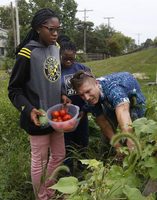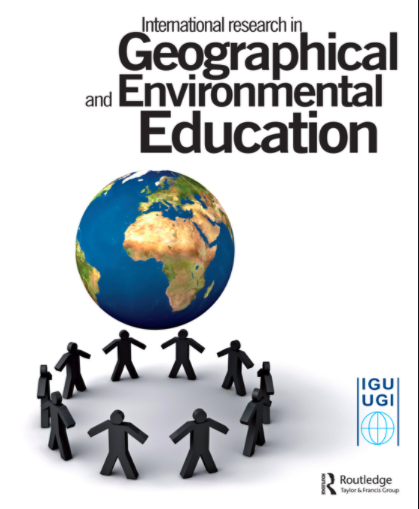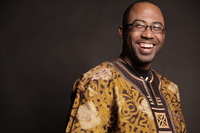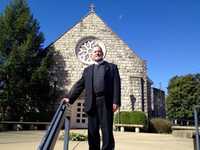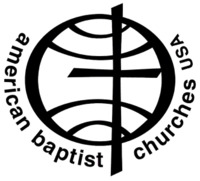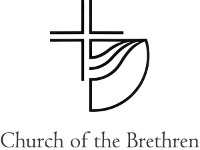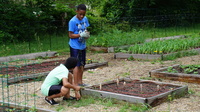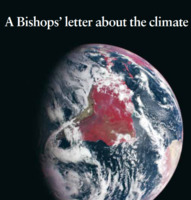Search
26 items
-
Faith Based Farms
Faith Based Farms is a webinar about families and communities from across the United States demonstrating their faith through farming. Colm Flynn, a freelance reporter, conducted his research by traveling from New Jersey, to Wisconsin, and to Michigan. During his journey, he enjoyed conversations with a range of diverse individuals and faith-based groups. -
The Villa Farm
The Villa Maria, located in Villa Maria, Pennsylvania, describes itself on their website as the following: "Operating on 759 acres, the farm of Villa Maria Community Center is an integral part of the heritage of the Sisters of the Humility of Mary. The farm serves as a symbol of the struggle and sacrifice of a small group of women who settled on the Lawrence County land in 1864 and succeeded in establishing a viable, productive farm when others before them had failed. Land management at the farm is based on spirituality, sustainability, simplicity and the preservation of all local life systems." The greenhouse is open seasonally along with a produce market that sells the food grown. -
Columbus bonds with Ghana sister city through agriculture project
Roman Catholic Cardinal Peter Turkson spoke at Mershon Auditorium at The Ohio State University in 2015. The proceeds from his talk with OSU President Michael Drake were used as matching funds in a grant from the Initiative for Food and Agricultural Transformation (InFACT) discovery theme program. The proceeds funded an agricultural exchange between Accra, Ghana, and Columbus, Ohio. -
We Are What We Eat
The 214th General Assembly (2002) Presbyterian Church (U.S.A.) approved the following report titled We Are What We Eat. This report focuses on how people can influence the agriculture revolution with regard to sustainability, stewardship compassion, and community. The final section provides suggestions for activities and studies that congregations can engage in with regard to food production/consumption. -
How do we Communicate Environmental Ethics? Reflections on Environmental Education from a Kuwaiti Perspective
Dr. Khadija al-Naki, an educational researcher, discusses Islamic thought in relation to environmental education. Comparing Islamic teachings with Western environmental ethics, al-Naki opens a conversation on how to develop an environmental curriculum in Islamic education systems. This article leaves the reader questioning the role of education in the environmental movement.
Published in the journal International Research in Geographical and Environmental Education. -
Manifesto for an Ecological Reformation of Christianity
This Manifesto by the World Council of Churches is a call to examine Christian practices that may be harmful to the Earth, humans, and other species. It urges individuals instead to focus on what various “eco-congregations” or “green churches” are doing. The following manifesto excerpt provides a rationale for the need for ecological reformation:
"The need for an ecological reformation of all Christian traditions is of course manifested in different ways in various parts of the world. The pain impulses associated with ecological destruction have been registered especially in those areas that lie on the periphery of current constellations of economic power. The call for an ecological reformation of Christianity has come with particular urgency from Christians in such areas (the Pacific, Africa, Asia, Latin-America) as they are more exposed and vulnerable. This call is echoed by churches which belong to (mainly protestant) countries in the global North which have contributed heavily to the exploitation of natural resources, industrial production and a style of consumption that causes environmental degradation." -
Going Vegan for Lent can Orient us towards Christ's calling
Elyse Durham writes that it is becoming increasingly common for people to give up meat for lent, and makes note that many of the farming practices we use today are unnecessarily cruel. In addition, the consumer culture in America tempts Christians to live lives of greed instead of virtue. Karen Swallow brings up the idea of "reducetarianism," simply considering the amount of meat you consume and its implications for the environment. Fasts and veganism are suggestions for Christians who want to move away from a life of over-consumption. -
Wanted: Innovative Farmers to Help Slow Algal Bloom on Lake Erie
The Christian Science Monitor has written an article discussing how agricultural nutrients in the Maumee River, Lake Erie’s biggest source of pollution, are reaching record proportions. Most nutrient pollution is caused by large storms, and with climate change, these storms are becoming increasingly more common. The USDA reports that farmers are making headway toward reducing nutrient pollution on a voluntary basis, but many researchers say that these efforts are not sufficient. A recent report suggests additional outreach, an increased focus of conservation dollars, and mandated soil testing.
Wetland restoration – bringing back bits of the Black Swamp— can play a pivotal role in clearing algal bloom in Lake Erie. The Black Swamp Conservancy is currently working on turning 60 acres back into swamp in northwestern Ohio. William Mitsch, a retired Ohio State University professor and wetlands expert, hopes to eventually restore a tenth of the Black Swamp (about 100,000 acres) to provide a substantial cleaning of Lake Erie. -
Profile: Rev. Dr. Heber M Brown
Rev. Dr. Heber M. Brown is a Baptist pastor in Baltimore, Maryland. Brown is committed to social development and has been instrumental in the creation of several programs in the Baltimore area. These include Orita’s Cross Freedom School, of which he is the founding director, and the Black Church Food Security Network. The latter works to support the accessibility of food by linking historically African American congregations with urban growers and Black farmers. Brown has received a number of awards recognizing his work, including the Ella Baker Freedom Fighter Award and the Food Justice Award from the Baltimore City Office of Civil Rights. -
Anamchara Faith Community Celebrates Earth Day 2016
This year, the Anamchara Faith Community will be providing an Earth Day celebration in the woods at Bernheim Forest in Bullitt County, Kentucky. The service will include biblical passages that give honor to the importance of trees, with the plan to plant at least one during this time. This service will draw from different faiths and cultures, ranging from the Catholic faith to Native American customs and traditions. -
Trees for the Earth
The Catholic community is joining with the Earth Day Network to help reach the goal of planting 7.8 billion trees by 2020. This would equate to one tree per person on earth. Pope Francis's recent encyclical, Laudato Si, focuses on the importance of trees and their benefits to the environment as well as human kind. -
Tu B’Shvat: Trees’ ReBirth Day
The Jewish festival of Tu B’Shvat, also known as the New Year for Trees, celebrates the ReBirthDay of earthly trees and of the sacred and supernal Tree of Life. The celebration begins on January 30th and ends January 31st. It is celebrated with a Seder in which the menu is the fruits and nuts that are given by the trees. As a special aspect of their climate-crisis work, The Shalom Center is inviting people to create a special Trees of Life Fund for reforestation in the US. -
Environmental Statement – American Baptist Churches
Environmental problems that exists today have stemmed from humanity’s current and past greed. Science and technology are being abused and threaten to make problems worse, even though they have the power to make things better. American Baptists advocate that we must be stewards of our home and not abuse it if we wish to continue on as a species. In order to fix what humans have caused, we are called to recognize and preserve the earth and natural resources we have. -
Environmental Statement – Church of the Brethren
The Bible is filled with examples that demonstrate our responsibility to care for all creation on our planet. From Genesis to the parables of Jesus, it is explicitly stated that we must be caring stewards of the earth. In order to reverse the damage that humankind has done, the Church of the Brethren is calling its own members and all people to action. In addition, they are also calling upon the government to be more supportive of environmental policies and clean up. -
Environmental Statement – Reformed Church in America
In 1982, the Christian Action Commission of the Reformed Church in America (RCA) released a document titled “Care for the Earth: Theology and Practice.” This was given to General Synod, who then passed several resolutions outlining the Reformed Church in America’s stance on environmental issues. The Action Institute wrote the article below that discusses the resolutions that were passed. -
Seminary Hill Farm Community Supported Agriculture (CSA)
The Seminary Hill Farm website includes the following information on their community supported agriculture program:
"Transforming the traditional model of a CSA program, our program follows a new model that allows you to choose what items you would like week to week without having to commit to the entire season. Once the season begins, simply choose the items you would like to enjoy in your kitchen that week by visiting our website and meet us at one of our convenient locations to pick up your honestly fresh ingredients. We will have the items properly washed, packed and ready for you to take home and celebrate." -
Engaged Organizations: Saint Kateri Conservation Center
Saint Kateri Conservation Center decribe their various ecological program offerings on their website:
"The Saint Kateri Conservation Center offers a faith-based program to inspire Catholics and others to restore yards, gardens, schools, farms, parks, forests, rivers, and wetlands into healthy habitats for people and wildlife. We do this close to home, where we live and work.
The Saint Kateri Habitat Program encourages individuals, parishes, schools, religious orders, and working landowners to restore their natural homes in a way that praises God and fosters a greater connection between people and nature. " -
The Charles Madison Narbit Memorial Garden
The Charles Madison Narbit Memorial Garden website states the purpose for it's creation:
"About the Garden: The Charles Madison Nabrit Memorial Garden
Named 2015 Community Garden of the Year and selected as one of 12 Hub Gardens in Central Ohio by Franklin Park Conservatory and Botanical Gardens, CMNMG@CCAF was created as a living legacy to Charles Madison Nabrit’s commitment to holistic health, self-determination, education and community service.
Our mission is to:
(1) increase affordable access to organic produce;
(2) increase awareness of the spiritual and cultural connections to gardening within black and brown communities;
(3) increase children’s exposure to functional STEM studies; and
(4) increase economic self-sufficiency and sustainability in the garden, in our homes and in our community.
Opened in 2014 in the midst of an urban food desert, CMNMG@CCAF is a 3,850 square foot, organic, biodiverse, self-sustaining space behind a church housing an historic, 105+ year-old, predominantly black congregation, descendents of the African diaspora to the Americas. Our hashtags speak to our spiritual and cultural heritage: #HeStartedUsinaGarden and #WeCameHeretoCultivate." -
Shepherd's Fest (Shepherd's Corner)
Shepherd's Corner ecological center provides information regarding their annual festival on their webpage:
"Explore our food pantry gardens, take a hayride around the property, meet our sheep, and walk the meditation trail & labyrinth. Savor delicious food from a local food truck (Moody Trudy). Meet the Jefferson Township fire department and check out a fire truck up close. Watch Gail Maraman, a local felt artist, demonstrate her art. Chat with AEP representatives about electricity savings, consider more responsible energy use with Columbia gas. and learn about the environmental efforts of Green Spot Columbus. We will have a farm stand featuring of our naturally grown produce, 2019 maple syrup, and crafts made by the Dominican Sisters of Peace and volunteers." -
Engaged Organizations: A Rocha International
A Rocha International discuss their mission on their website:
"At A Rocha USA, our mission is to restore both people and places through collaborative, community-based conservation.
We resource Christians to care for creation where they live by building a network of hands-on conservation projects in communities across the nation. Through partnerships with individuals, churches, and community groups, we provide content, curriculum, and a network of support for improving local habitats and increasing biodiversity." -
Engaged Organizations: Columban Center for Advocacy and Outreach
Columban Center for Advocacy and Outreach serves as a line of communication between Columban missionaries and policy makers in Washington D.C. Missionaries are stationed in 16 countries around the world, bringing attention to environmental justice issues that are most pressing for marginalized populations in the areas. Their primary focus is combating human-induced climate change. In addition, they advocate for sustainable development and agricultural systems, and right to clean water. -
Declaration of the Health of People, Health of Planet and Our Responsibility Climate Change, Air Pollution and Health Workshop
The Pontifical Academy of Sciences posted findings and proposed solutions addressing problems of health of people and our planet, with a specific focus on climate change and air pollution, on their website. They present findings and proposed solutions that were presented at one of their workshop from November 2-4, 2017: -
Buddhist Faith Statement on the Environment
Interfaith Center for Sustainable Development posted a Buddhist faith statement on the environment on their website. According to the Vietnamese monk Venerable Thich Nhat Hanh:
“Buddhists believe that the reality of the interconnectedness of human beings, society and Nature will reveal itself more and more to us as we gradually recover—as we gradually cease to be possessed by anxiety, fear, and the dispersion of the mind. Among the three—human beings, society, and Nature—it is us who begin to effect change. But in order to effect change we must recover ourselves, one must be whole. Since this requires the kind of environment favorable to one’s healing, one must seek the kind of lifestyle that is free from the destruction of one’s humanness. Efforts to change the environment and to change oneself are both necessary. But we know how difficult it is to change the environment if individuals themselves are not in a state of equilibrium.” -
Christian Ecology
Interfaith Center for Sustainability Development posted a Christian ecology statement, based on the 1995 Windsor Statements, on their website. The following is an excerpt discussing the challenges that have persisted over time with regard to the care for creation:
"In the words of the Orthodox Patriarchate, ‘This may well mean that just as a shepherd will in times of greatest hazard lay down his life for his flock, so human beings may need to forego part of their wants and needs in order that the survival of the natural world can be assured.'
The challenge to all Christians is to discover anew the truth that God’s love and liberation is for all creation, not just humanity, and to seek new ways of living that restore balance and hope of life to the endangered planet." -
A Bishops’ Letter about the Climate
Below is a section of the introduction from A Bishops’ Letter about the Climate, which covers a multitude of critical environmental issues, from the 2014 Bishops' conference:
"We have lived with reports and forecasts of climate change since the 1980s. Our climate is the result of the interaction of complex systems and there is often a great distance between cause and effect in terms of both space and time. There are uncertainties and a lack of clarity. However, the knowledge we possess today does not allow us to postpone until tomorrow
what needs to be done now. Our human climate impact must decrease for the sake of the earth, for the sake of the world that God so loves that God gave us Jesus Christ."



